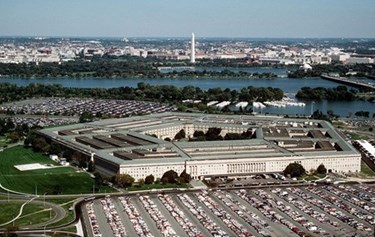Pentagon Investment In Flexible Electronics Includes Medtech

U.S. Secretary of Defense Ash Carter announced that the Pentagon will provide $75 million in seed money to high-tech innovators developing flexible electronics, and these funds will be matched by a $96 million investment by local governments and some of the biggest names in technology. Next-generation wearables, smart prosthetics, and electronic “human” skin are among the Pentagon’s medtech investments, according to Carter’s speech at NASA’s Ames Research Center (ARC).
Since his appointment in February, Carter has been working to integrate innovation investment between the government and Silicon Valley, believing that technology will develop faster if the two work together, rather than separately, as they have in the past. The Wall Street Journal (WSJ) reported Secretary Carter has already visited Silicon Valley more than any of his predecessors in the last two decades.
During a talk he gave at Stanford University in April, Carter said partnership between scientists and the Department of Defense (DoD) is a crucial part of mitigating “the risk that comes with technology while simultaneously unleashing its promise and potential,” reported DOD News. Carter also said that, historically, layers of unnecessary bureaucracy have stood in the way of this partnership.
At his most recent speech at ARC, Carter again addressed the tech industry’s feelings of distrust and frustration with the government, saying some disagreement is better than not speaking at all.
“We’re drilling tunnels through that wall that separates government from scientists and commercial technologists — making it more permeable so more of America’s brightest minds can contribute to our mission of national defense, even if only for the first time,” said Carter, according to the WSJ.
Part of that process is the creation of the Flexible Hybrid Electronics Manufacturing Innovation Hub, toward which the Pentagon will invest $75 million. Local governments and a consortium of 162 private companies, universities and other groups will invest an additional $96 million, bringing the total to $171 million to be paid out over the next five years.
Reuters reported that the consortium, to be managed by the U.S. Air Force Research Laboratory, included tech industry names both big and small, and some of the biggest names in technology, such as Apple, United Technologies, Hewlett Packard, and Harvard University have signed on.
According to Carter, the initiative will spur innovations applicable to both the military and the private sector, and he speculated about smart bandages, life-like prosthetics, and flexible sensors integrated into soldiers’ uniforms. In addition, he spoke about better diagnostic x-rays that could make breast cancer tests less painful, reported ABCNews.
“We don’t know all the applications this new technology will make possible,” said Carter. “That’s the remarkable thing about innovation.”
